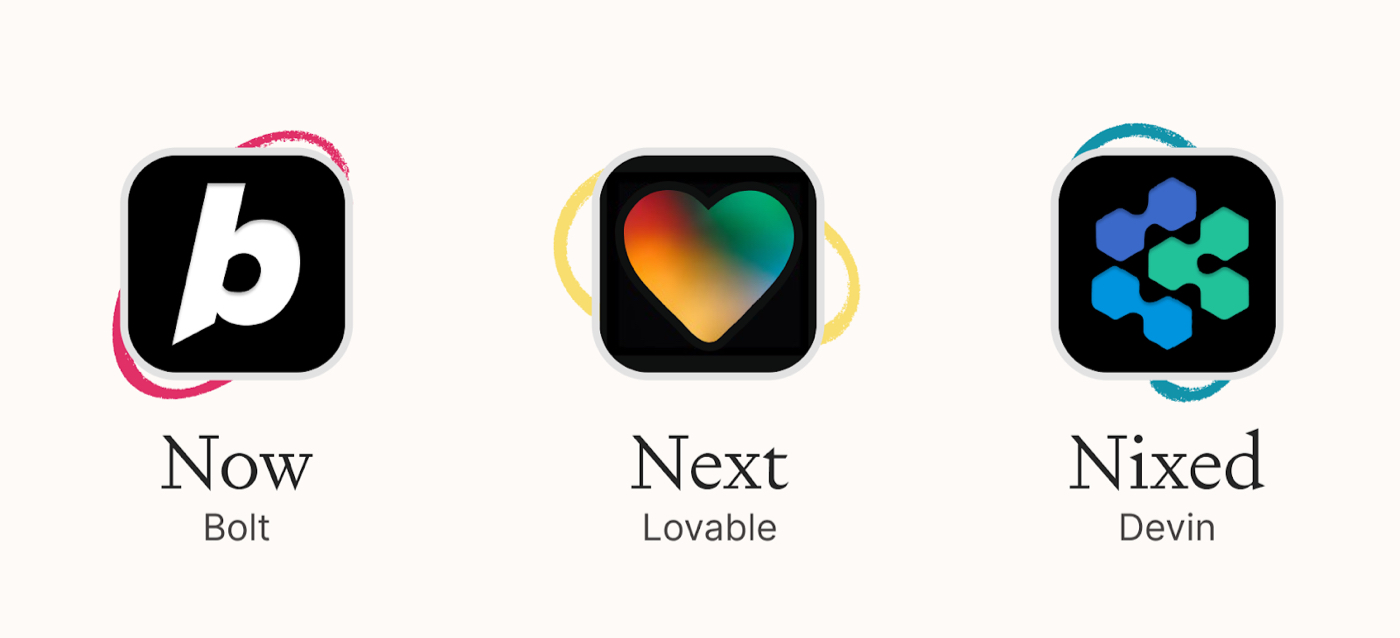
Taking the Entrepreneurial Leap
Plus: Why specialized AI beats the hype
November 30, 2024 · Updated February 4, 2026
Hello, and happy Sunday! For those of you who celebrate Thanksgiving, we hope you had a wonderful and relaxing holiday. We’re grateful to all of our readers and members of the Every community who inspire and sustain us. Read on for everything we published this (short) week, and our take on the latest tech and business news.—Kate Lee
Was this newsletter forwarded to you? Sign up to get it in your inbox.
Knowledge base
"The Real Value of AI Isn't General Intelligence" by Phin Barnes/Thesis: The race for artificial general intelligence (AGI) may have captured all the hype, but specialized models are how we scale. Phin Barnes, cofounder of venture capital firm The General Partnership, argues that the path to true economic value lies not in general intelligence but in tailored, industry-specific solutions. Spend money, Barnes advises: High API costs aren’t overhead—they're R&D investments that build future moats. Read this if you’re looking for a strategic playbook on building indefensible businesses in the AI era.
"Introducing Spiral v2" by Dan Shipper: Every’s AI creative automation tool got a major glow-up: The latest version of Spiral—which crafts viral tweets, LinkedIn posts, and blog content that actually sounds like you—is out now. With a redesign, more than 200 handcrafted templates, and Claude Sonnet 3.5 under the hood, you get to minimize your creative grunt work while maxing out on content quality and quantity. The best part? It was built by a former Every reader who went from fan to product owner. Read this if you want to see how AI can bring your content from "meh" to magnificent in seconds. 🔏 Spiral is available as a standalone tool for $15 per month or included with your Every subscription.
“I Left My Job to Run an AI Wrapper at Every” by Danny Aziz/Source Code: Danny Aziz started his career jailbreaking iPods in high school—today, he’s the general manager of Spiral, our creative automation tool. His trajectory has been anything but conventional; what’s consistent is that he treated every success and failure as an opportunity for growth. Building with Every is no different: Leaving cushy tech for bootstrapped media is a risky bet, but crafting a product that feels meaningful makes the uncertainty worth it. Read this if you've ever dreamed of building something of your own—but haven't taken the leap yet. ꩜ Try Spiral today.
🎧 🖥 "How We Incubate and Launch New Products With AI" by Dan Shipper/AI & I: What happens when you mix writers, coders, and AI tools? At Every, we’re learning on the job by dogfooding our own product launches. In a new episode of AI & I, Dan sits down with Danny Aziz (who forewent a cushy $200,000 salary to lead Spiral, our first product incubation) and Brandon Gell, the head of Studio, to talk about Every’s bootstrapped building process. The secret sauce? A combination of AI-powered agility, emotionally intelligent teammates, and the freedom to build the products you care about. Watch this if you want to learn how to build for yourself without the traditional startup playbook. 🎧 🖥 Watch on X or YouTube, or listen on Spotify or Apple Podcasts.—Aleena Vigoda
Sponsored by: Every
Get the whole package
We write, and then we build. If you’re a fan of Every's writing, you’ll probably like the products we’ve made to make thinkers more efficient: Spiral to automate repeat writing tasks, Lex to help you write better, and Sparkle to clean up your desktop—for good. With our last discount of the year, we're offering the whole package of writing and software for 33% off.
Now, next, nixed
The current state of prompt-first development tools.
Source: Every illustration.Fine tuning
Amazon is taking on NVIDIA in chip manufacturing, coming on the heels of OpenAI’s commitment to in-house hardware. Whereas OpenAI is more interested in diversifying its chip supply to limit its dependence on key players, Amazon—which has until now lagged behind in the race to AGI—is more interested in competing for market share in the $100 billion chip-manufacturing industry.
Rival chip giant Intel received a $7.9 billion grant from the U.S. Department of Commerce to scale domestic manufacturing and stimulate “tens of thousands” of jobs. Intel—which cut 15 percent of its workforce earlier this year—has been transitioning to a “foundry” model, manufacturing both in-house chips as well as supplying them for clients like AWS.
Appcharge, a Shopify for game developers, raised $26 million to cut Apple and Google out of the gaming economy. Google’s ad monopoly is at the very core of the company’s anti-trust trial. As part of its defense, Google has subpoenaed OpenAI and Perplexity (the latter of which recently launched shopping features).
Meta has taken down 2 million accounts linked to organized crime rings—specifically, pig butchering scams. This is the culmination of a two-year operation targeting crypto scam compounds in South East Asia; in May of this year, Meta joined a tech coalition with companies like Match Group, Ripple, Gemini, and Coinbase to fight online fraud.
Beta-testers for OpenAI’s Sora video model leaked early access to the tool in protest of OpenAI’s treatment of the 300 artists participating in the company’s creator program. In their letter, which begins “DEAR CORPORATE AI OVERLORDS,” the artists argue that they are not “unpaid R&D” for publicity stunts. OpenAI revoked Sora access within hours of the leak, adding fuel to ongoing criticism about how AI companies engage with creators.
OpenAI responded to allegations that the company deleted evidence in its copyright lawsuit with the New York Times, accusing the latter of “self-inflicted wounds.” Last week, Judge Ona Wang rejected OpenAI’s fair use defense, which claimed that generative AI is a “public benefit” to journalism in general, ruling instead that OpenAI must prove how its specific copying of Times content benefits the public.
Uber is launching Scaled Solutions, an AI data labeling arm to help businesses train their own models. Built on top of Uber’s internal annotation team, the division is expanding to provide contracting services and “coders-for-hire” to companies like Pokemon Go developer Niantic (which recently announced its move into geospatial AI) and self-driving vehicle company Aurora.
Elon Musk is recruiting from Silicon Valley for DOGE (Department of Government Efficiency), his unofficial task force that aims to cut $2 trillion from federal spending. Alongside co-lead Vivek Ramaswamy, his cast of characters includes Marc Andreessen, Palantir cofounder Joe Lonsdale, and hedge fund manager Bill Ackman.
China’s widespread wiretapping of U.S. telecoms has been the nation’s “worst hack in history,” exploiting the systems that U.S. authorities use for surveillance in criminal cases. The breach, which compromised thousands of network devices, is so severe that carriers may need to physically rebuild their infrastructure to remove infiltrators—exposing critical vulnerabilities in America's communications backbone.
Ex-Stripe CTO David Singleton raised $56 million for /dev/agents, an operating system for AI agents (the name is a nostalgic nod to Stripe’s original name of /dev/payments). The company’s four cofounders, with backgrounds in Android, wearables, and AR/VR, are betting on an “Android-like moment” for AI. We’re waiting to see whether the market is stable enough, and the infrastructure strong enough, to support smaller, modular players in the space.—AV
Alignment
Bridge the cringe. Everyone wants to be great at what they do. But there's something fundamentally wrong with hustle culture's obsession with churning out endless work fueled by Zyn and Red Bull. What holds people back isn't effort—it's the gap between taste and ability. As This American Life host Ira Glass says, you can spot brilliant work instantly, but your own creations make you cringe. That cringe isn't failure, though; it’s a sign that you can see what’s possible. I wish someone had told me earlier that the bridge between mediocre and meaningful work isn't built through endless hours of keyboard smashing. It's built through deliberate practice and studying what makes great work sing. For every product you love, every design that makes you pause, analyze why it stands out. One hour of focused analysis beats 10 hours of mindless output. The gap will close if you're walking in the right direction. Trust your taste—it's your map.—Ashwin Sharma
Hallucination
Technology is just mud with purpose.
Source: X/Lucas Crespo.That’s all for this week! Be sure to follow Every on X at @every and on LinkedIn.
We also build AI tools for readers like you. Automate repeat writing with Spiral. Organize files automatically with Sparkle. Write something great with Lex.
The Only Subscription
You Need to
Stay at the
Edge of AI
The essential toolkit for those shaping the future
"This might be the best value you
can get from an AI subscription."
- Jay S.
Join 100,000+ leaders, builders, and innovators

Email address
Already have an account? Sign in
What is included in a subscription?
Daily insights from AI pioneers + early access to powerful AI tools








.05.38_PM.png)
.png)
.png)
Comments
Don't have an account? Sign up!